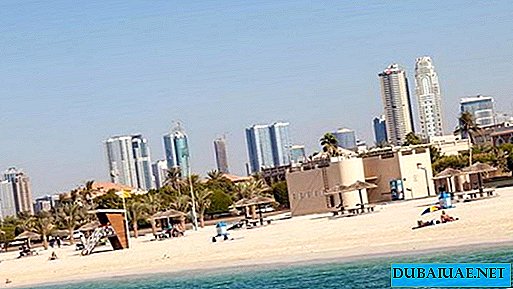 Text: Natalia Remmer
Text: Natalia Remmer ENDLESS WHITE-BEACHING BEACHES, COLORFUL WATER OF THE INDIAN OCEAN AND THE RICHEST HISTORICAL HERITAGE IN THE ATMOSPHERE OF TOTAL CAREFLESS - EXOTIC TOURIST SHIPPING SHALLOW EMPTY.
South of the equator
Zanzibar was our first trip to the real "black" Africa. And, of course, flying out of Dubai, we expected to be the only white-skinned people aboard the flydubai. However, we were mistaken: when we settled comfortably in our places, waiting for Africans with wicker baskets on their heads and babies behind them, an impressive group of Russian-speaking tourists (about 50 people), who were probably traveling with a dock in Dubai from Russia and Ukraine, quickly loaded into the plane.
We crossed the equator in the early morning and met the breathtaking sunrise over the Indian Ocean and the completely green continent unknown to us, surrounded, like satellites, by a range of exotic islands with snow-white atoll reefs, which we had to explore. Short formalities and obtaining a visa at the airport (if you are traveling from Dubai and do not visit continental Africa, it is not necessary to be vaccinated against yellow fever - Note ed.) - and we are already rushing to the northernmost tip of the island - Nungwi village, where we were the guide promised the turquoise waters of the ocean and the whitest sands of the beach. The haven for a short trip (Zanzibar is ideal for a long weekend) was the DoubleTree Resort by Hilton Hotel Zanzibar - Nungwi: a cozy four-star resort with friendly staff and everything you need to have a good time (among the most visited places of the hotel are two restaurants, a bar by the pool and SPA-center, where you can get an exclusive massage with spices).
A good rest in the local understanding is a state of complete relaxation, bliss and endless admiration for the ocean: the ebb and flow, a parade of dhow fishing boats embarking on sea hunting - or Zanzibar women collecting seaweed. Here, no one is in a hurry, and time seems to freeze. Hakuna Matata, which is translated from the local Swahili language means “do not worry, no problem”, is the motto of the island’s population, lifestyle and expression that will always remain in the tourist’s vocabulary after visiting Zanzibar.
The most important wealth of the island is a variety of beautiful beaches, which you should definitely familiarize yourself with. Of course, going around them by car or going around on foot does not make much sense. The best option is to get around them from the sea in a traditional wooden boat. In addition to the already mentioned Nungwi beach, three more are considered the most attractive on the island.
- The deserted Mangapwani beach on the west coast, derived from the word "mango" ("merchant"). In addition to serene beauty, here you can see cameras for slaves, where they were hidden before being sent to other countries (a little history of Zanzibar - very soon).
- Uroa beach, where you can get acquainted with lively exotics: during long tides of 2-3 km, women from local tribes go ashore to collect crabs (the oldest inhabitants of these places), shellfish and seaweed.
- One of the best in Zanzibar, Kizimkazi beach is known for its secluded bays. Dolphins often come here, and in the nearby village is the oldest functioning Shirazi mosque in East Africa (the name indicates its Persian origin).
The north of the island, which we have chosen to stop on the road, has a vibrant nightlife. It hosts fun discos with African dances on the beach, theme nights with live music (such as in our hotel), coastal restaurants and bars are open for guests, where you can enjoy the freshest fish, seafood or exotic fruits and just admire the black African night sky with a myriad of stars, indulging in the sensations of "In the middle of nowhere" ("Far from civilization").
In Zanzibar, you will probably be offered a tour of the spice plantation. However, if you have already visited a similar market in Deira, then the trip is unlikely to impress you. It is better to go for a walk to the local fishing village to learn more about the life of Zanzibar residents: to look into their homes, visit the fishing market and watch the process of building an Arab dhow boat, the technology of which has not changed over the past 200 years. What’s called, plunge into the local flavor!
Crossroads of cultures
 From the small fishing village, we return back south to the airport. You have probably heard stories about how Arab merchants could determine the imminent appearance of Zanzibar by the characteristic smell of spices fragrant throughout the island. They still argue about where the name of the island came from: according to one version - from the Arabic “Zinj Al Barr” (“black land”), according to another - from “Zayn Zal Barr” (“beautiful island”).
From the small fishing village, we return back south to the airport. You have probably heard stories about how Arab merchants could determine the imminent appearance of Zanzibar by the characteristic smell of spices fragrant throughout the island. They still argue about where the name of the island came from: according to one version - from the Arabic “Zinj Al Barr” (“black land”), according to another - from “Zayn Zal Barr” (“beautiful island”).
The Arab influence, which has dominated here for four centuries, is felt in everything: in the traditional azans, reaching from the minarets of numerous mosques, and in following Muslim traditions, and in the buildings traditional for the Middle East in the heart of Zanzibar - the Stone Town, where almost nothing has changed over the past two centuries. A stone of history swept along Stone Town (this is the unofficial name of the island’s capital, which is under the protection of UNESCO): periods of Portuguese, Arab and English civilizations lay here on top of each other.
Curved streets and noisy bazaars remind of the former grandeur of the island, which served as a major port and a center for transshipment of goods from Africa to India, and majestic Arab mansions - the prosperity of the Omani aristocracy of the Sultanate period. For hundreds of years, slaves, gold, ivory and wood were delivered to India and Asia, and caravans of ships with spices, glass and textiles came in exchange from the East.
In Stone Town, we stayed at one of the best metropolitan hotels, also designed in oriental style - DoubleTree by Hilton Hotel Zanzibar - Stone Town. The hotel is located in the heart of the old city, and its terrace offers a magnificent view, as if from a Portuguese engraving of the 17th century. The town appears just as it was seen by sailors from distant countries who entered the island bay. The city center can be bypassed in one day.
Among the main attractions are the ceremonial palace of Sultan Said Barghash, nicknamed the “House of Wonders” due to the fact that electricity and an elevator appeared here for the first time on the island, an 18th-century Arab fort, which was chosen today by souvenir dealers and local artists, and the Anglican Cathedral on the main city square where the heart of traveler David Livingstone is buried. Here is the former slave market with dungeons and catacombs and the memorial to the disenfranchised victims of colonialism - a place saturated with cruelty and pain. It should be noted that many arrive in Zanzibar to visit the house in which the famous singer Freddie Mercury was born - unfortunately, we could not get there. Will have to come back!
Zanzibar is not just a tourist resort gaining popularity. This is a part of civilization with its rich history, a special way of life and a peculiar course of time. At one time it was an ideal place for tourists, "savages" looking for exotic adventures. Today, thanks to the growing number of comfortable hotels, the island is turning into a recreation center for every taste - from dancing on the beach and diving along coral reefs to the opportunity to plunge into the luxurious lifestyle of the Arab sultans. The best time to travel is from July to March, with a direct flight from Dubai. Say janmo to Zanzibar - our warm greetings!









